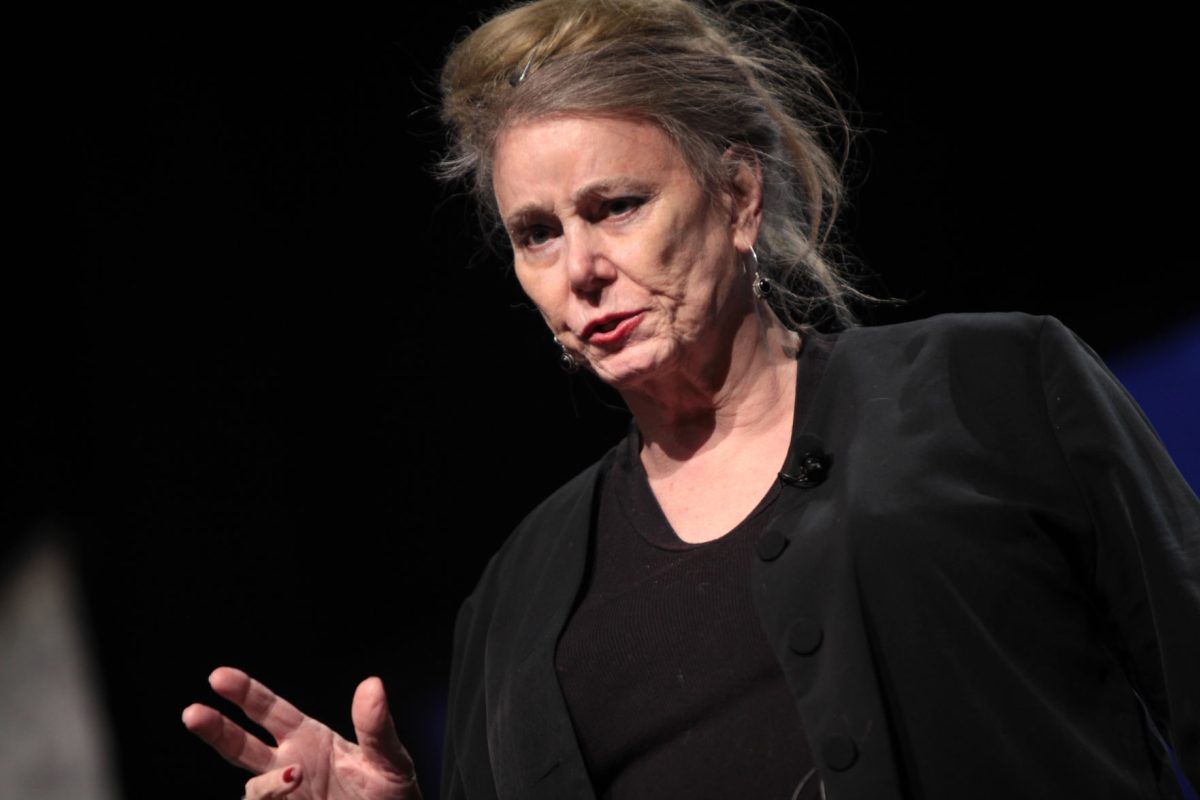Professor Deirdre McCloskey is a Distinguished Professor of Economics, History, English and Communication at the University of Illinois at Chicago. She is visiting Clemson on Monday, Oct. 30, at 5:30 p.m. in Tillman Hall, Memorial Auditorium, for her lecture “Ideas Make Us Rich.” We sat down with her this week in anticipation for her visit. As an authority in her field, we are very lucky to have her visit and we encourage all students to attend.
The Tiger (TT): How did come to pick economics as a field of study?
Deirdre McCloskey (DM): I started as a history major, and later the study of history became a central professional interest. My last few books are big economic history. My first few from 1973 and on were little economic history. But as a freshman I discovered that actual history courses involved a lot of tedious reading. So, being a lazy grade-grubber, I wanted a less onerous field. Some wise person gave me Bob Heilbronner’s The Worldly Philosophers. As the book has for hundreds of people, next term I registered as an economics major.
TT: Is there any new development or change that has surprised you, such as a new trend or a way of thinking?
(DM): I’ve been an economist, majoring and PhDing [sic] and professoring, since 1961. The field has changed in lots of ways. Mainly it has lost the older habit of reading long books. Economists have become mainly proud barbarians, anxious to claim their place in the science, technology, engineering and math fields but otherwise uninterested in wider cultural and intellectual issues. You can say to another economist “That’s pretty philosophical!” and she’ll understand it as an insult. Naturally, they do not read or understand any actual philosophy beyond an Idiot-Boy version they learned to recite in grad school. They don’t read novels. They do not know life and the arts of humans. A small number of us want to re-orient the field, keeping the math and all but adding the humanities. We call it “humanomics.” My trilogy from the University of Chicago Press, The Bourgeois Era, is a massive exercise in humanomics. Good Lord, I even quote John Milton’s poetry!
TT: I noticed some of your non-economics books, such as your memoir, Crossing: A Memoir. How do you feel about the current state of treatment towards the LGBT community? Is there a noticeable difference in how the community is treated in academia vs general society?
(DM): You can’t change gender in private! I’m amazed at the very recent change, especially since Caitlyn Jenner. It’s part of the sweet march of what is properly called “liberalism” of liberating people, in sequence; Catholics, slaves, beaten workers, unionists, Jews, women, gays, handicapped and, astonishingly now, gender crossers.
TT: How have the views on the LGBT community changed as recently as a few years ago? What was the atmosphere like when you released your memoir?
(DM): It’s been in the past few years astonishing. It’ll vary by part of the country; by rural, suburban, urban [area] and by family to family. Societies are complicated, and always changing. In most places, middle-school kids still are homo- and transphobes, in their confused way, calling people “gay” for example without knowing what the word means to adults. But nowadays even many high schools have LGBTQ clubs, and the football team doesn’t seem to object. At universities, of course, it’s not an issue at all, even in the South. The “religious” objection to toleration, by the way, does not as it claims rely on Biblical texts. The texts are few and ambiguous. Anyway a few verses earlier a text would condemn most US teenagers to stoning, because they talk back to their elders. And the message of our Lord and Savior is love, not hate.
TT: Your latest book, “Bourgeois Equality: How Ideas, Not Capital or Institutions, Enriched the World,“ really seems to contrast the established narrative relating capital to wealth. At what point did you begin having this point of view?
(DM): I got it slowly. Training as an economist of any sort attaches you to the lovely idea that we are rich because of capital accumulation — buildings, machines, bachelor’s degrees. Save more, get more. It’s true at any one instant, but false as long or short history. The buildings, machines, bachelor’s degrees came to be built only because someone long ago had an idea that adding steel to concrete would be good for buildings or had an idea a few decades ago that a business degree would be better with rigorous economics or had an idea last year that an assembly line for refrigerators could profitably open in South Carolina. Ideas are the seed. And the ideas come free to the prepared mind in the liberated society. Only so-called “Austrian” economists among my colleagues get the point. The rest keep trying to stuff the Great Enrichment of the past two centuries — fully three-thousand percentage increase per person in our ability to buy goods and service — -back into a simple “growth theory” model of piling brick on brick.
TT: You have recently published the third volume of your series, “The Bourgeois Era” what made you start this series and do you feel like you have told what you initially wanted to tell?
(DM): Yes, but along the way I got a second idea, too. The first, which I already had in 1990 or so, defended the middle class against what I regard as silly criticism. “The Bourgeois Virtues” (2006) used virtue ethics (and my newly won Christianity) to do the job. Meanwhile I realized I had stumbled on the explanation of our amazing riches compared with 1800. The explanation is not capital accumulation or exploitation, not railways or slavery. The explanation is the “Bourgeois Revaluation,” that is, letting people have a go. I speak of the “Bourgeois Deal:” “Leave me alone and I’ll make you rich.” And people by the millions have.
TT: Do you have an idea about what your next book will seek to address?
(DM): My next book, forthcoming from Yale University Press late next year, is a collection of my essays on politics, entitled “How to be a Human Libertarian: Essays in a New American Liberalism.”
TT: As an established professor in economics, is there anything you would like to share with students who are pursuing a similar field?
(DM): Read, read, read. Talk, talk, talk. You’ll catch yourself thinking. Drink the sludge on TV and you’ll never think again. If there was a way of enforcing the contract, I would give a first-week freshman permission to skip college entirely if she would undertake to read one serious book a week and write an opinion piece about it and then have two serious conversations about it for the rest of her life. By age 30 or so she would be well ahead of most bachelor’s degrees. The idea that you are educated by getting a BA age 22 is nitwitted. It’s merely a useful start. By age 75, she would be a wise and witty old lady, and would have had a full life, whether rich or poor, reflecting on the human condition.








